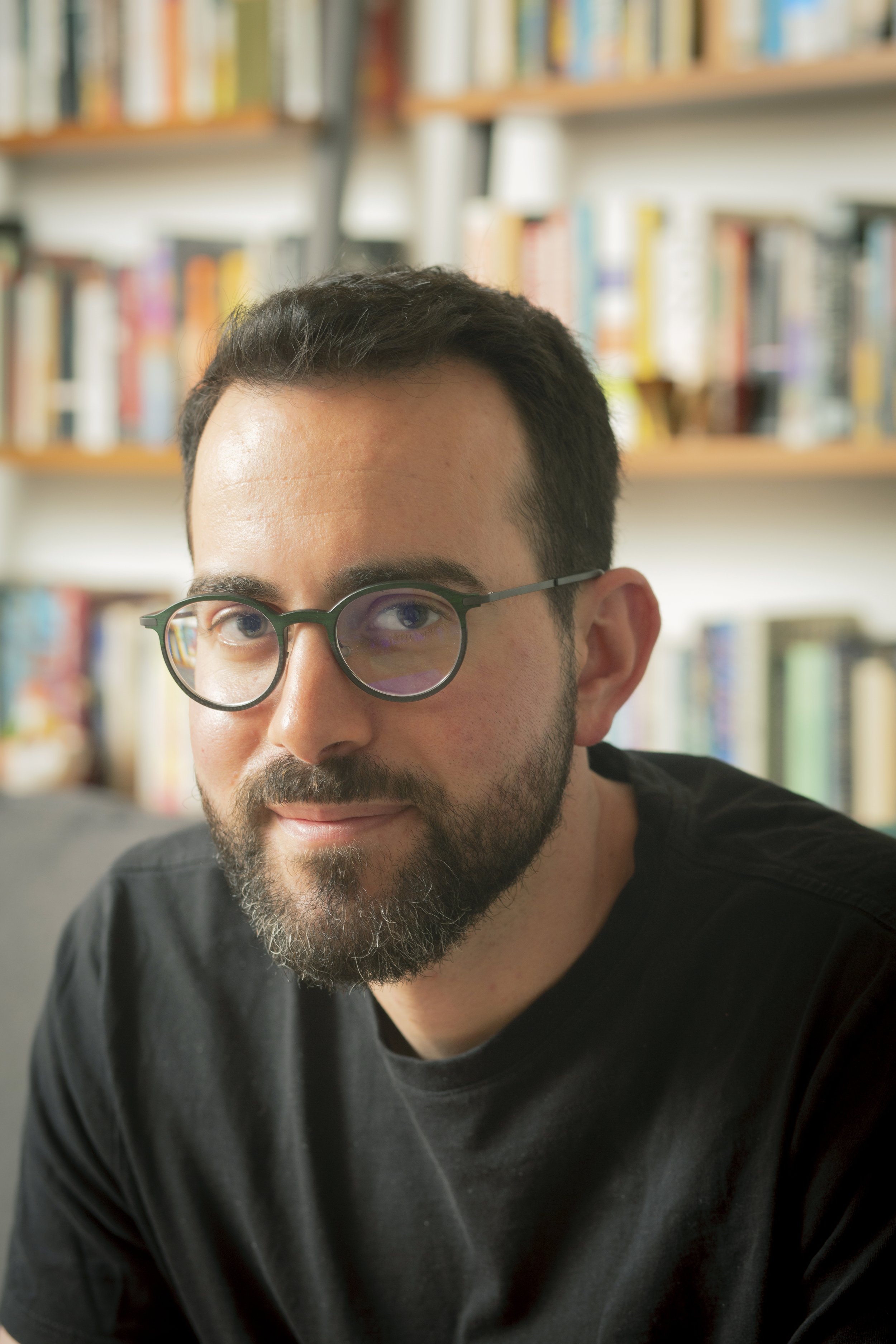Julius Taranto
How i won a nobel prize
A novel
"'Genius . . . it brought to mind the satires of Percival Everett and Paul Beatty . . . switch[ing] seamlessly between psychological realism and diabolical farce, between deep moral seriousness and nob gags . . . Taranto is a brave, ambitious writer.”―Johanna Thomas-Corr, THE TIMES
"A gleefully irreverent satire of so-called cancel culture, virtue signaling, and early-21st-century hypocrisy."―Adam Langer, THE ATLANTIC
“[An] outstanding satirical novel . . . a very funny, very contemporary fable plays out as the novel entertains the absurdities of a world in which politics skews every aspect of daily life . . . . The crisp intelligence of Mr. Taranto’s writing—even the arcana of superconductivity is believably explained—eases the way toward a zany, cinematic finale. In the end, How I Won a Nobel Prize offers a baffled endorsement of disorder, of the chaos of argumentation itself.” —Sam Sacks, THE WALL STREET JOURNAL
"A hit. A very palpable hit."―Stuart Kelly, THE SPECTATOR
“Very funny. Very good.” —B.J. Novak, New York Times Bestselling author of One More Thing
“An indisputably brilliant comic novel of ideas, a feat of deep research and Olympian satire worthy of Don DeLillo. Julius Taranto confidently grasps the third rail of cancel culture and ties it into a balloon animal, with great nerve and heart (to say nothing of phlegm, bile, and blood—in other words, humor). Reading this book is like doing a whippit that makes you smarter." —Tony Tulathimutte, author of Private Citizens
"Deliciously satirical." ―Katie Fraser, THE BOOKSELLER
“This is serious fiction of the least self-serious kind. Never cynical or dogmatic, How I Won a Nobel Prize kindles from the pieties of our moment a brilliantly executed, uproarious, and unabashedly precise exploration of ambition, power, love, and the painful art of balancing what we owe one another and ourselves. A character-driven page-turner.” —Lindsay Stern, author of The Study of Animal Languages
"[A] wildly original debut . . . propulsive, smart, funny." —Louisa Ermelino, PUBLISHERS WEEKLY
“A stunning new talent, announcing itself fully formed.” ―Jonathan Lethem, author of Brooklyn Crime Novel
"It’s Taranto’s humor, especially his sentence-level wordplay, that keeps this book from collapsing under the weight of its high-concept, high-stakes premise . . . The love story at its core feels raw and tech-laden in a uniquely contemporary way." ―Brendan Driscoll, BOOKLIST, starred review
“More fun than any debut I’ve read this year.” —Boris Kachka, NPR, Press Play with Madeliene Brand
"This book is funny as heck." ―Constance Grady, VOX
"Julius Taranto does an incredible job crafting an ambitious and nuanced narrative about ‘cancel culture’ that’ll keep you laughing from start to finish." ―Ama Kwarteng, COVETEUR
"A first-class debut . . . brilliant . . . essentially a Philip Roth book told in the form of a Warren Zevon song." ―Val Nolan, THE IRISH TIMES
"Adept . . . examines such deals with the devil while asking — with wit and confidence — just who is the devil, really?" ―Erica Wagner, THE FINANCIAL TIMES
Most Anticipated Books of 2023 ― THE MILLIONS
"A debut of great skill and admirable complexity." ―Alex Preston, THE OBSERVER
"An addictive page-turner . . . a twisty satire with verve and sass." ―Antony Cummins, THE DAILY MAIL
"This funny, provocative academic satire asks what demands genius makes on one’s attention, and which values can be sacrificed to advance art and science." ―Kenneth Dillon, PUBLIC BOOKS
“A high-wire act, balancing savvy political satire with brilliant character development and prose that sings and guffaws with nuance. Taranto writes his characters with depth and delight, making readers want to continually return to see what they are doing.” ―Dominic Charles Howarth, SHELF AWARENESS, starred review
“I extracted layers of meaning from this comic tale. . . . [Taranto] keeps his eye on the prize.” ―Maren Longbella, STAR TRIBUNE
"Julius Taranto achieves the near-impossible: a literary comedy about cancel culture that is neither priggish nor self-satisfiedly transgressive, less about culture wars than the never-ending battle of being human. A novel of ideas in the tradition of Norman Rush's Mating, How I Won a Nobel Prize is one of the best new novels I've read in years." —Tara Isabella Burton, author of Social Creature and Self-Made
“Such a delightful surprise! Smart and thoughtful and seriously entertaining, a refreshing literary cocktail that takes the right kinds of chances at this chancy moment.” —Kurt Andersen, New York Times Bestselling author of Evil Geniuses and Heyday
“Playful, taunting, and incisive—a feat of wit, toying with the systems and classifications of our times to arrive at something brilliantly uncategorizable. Julius Taranto has a razor-sharp voice.” —Charmaine Craig, bestselling author of Miss Burma and My Nemesis
"Smart and funny . . . Taranto expertly explores the messy discussions around cancel culture and how much geniuses might be forgiven inappropriate conduct . . . a fine study of the idea that, for all the complaints about the culture wars, nobody can pretend they’re not implicated. A bright, well-turned satirical debut.” —KIRKUS REVIEWS
"Nail-bitingly tense . . . bracingly clever . . . a funny page-turner with plenty of surprises up its sleeve." ―Liam Hess, VOGUE
“Very funny . . . There’s something to be said for a novel that validates the messiness of the [culture war] battles and doesn’t try so strenuously to resolve them.” ―Mark Athitakis, LOS ANGELES TIMES
About
My writing has appeared in the New York Review of Books, Washington Post, Cleveland Review of Books, and some other places. I am also a lawyer. I live in New York.
Photo by Elena Seibert

